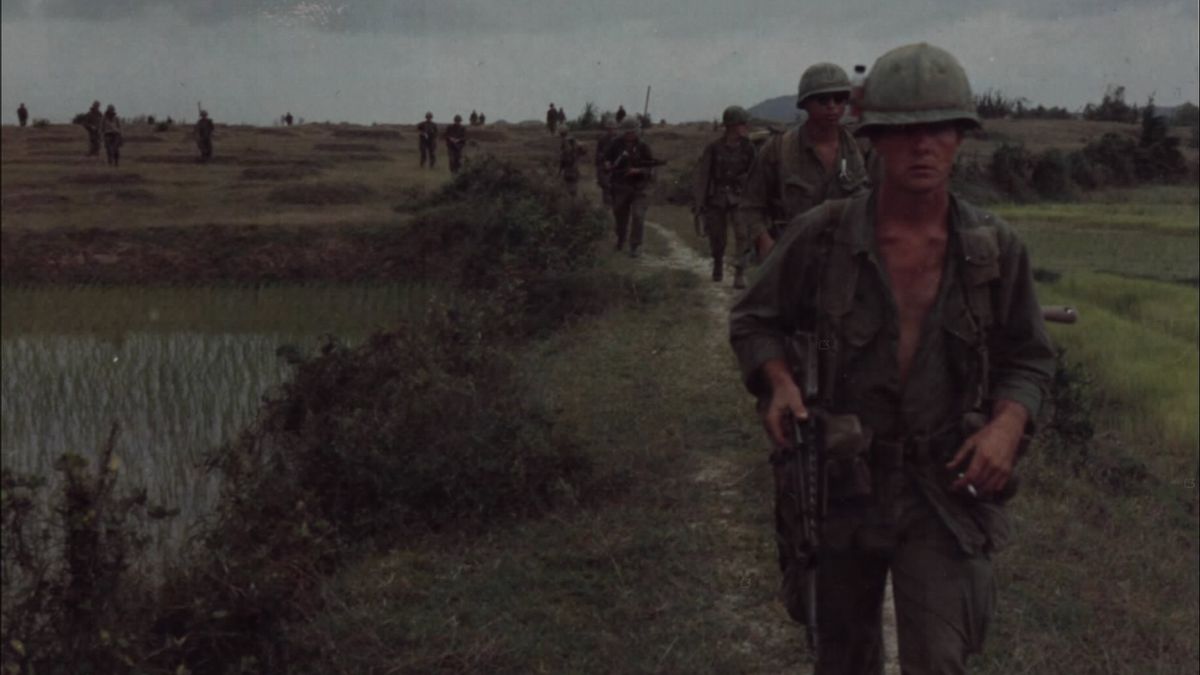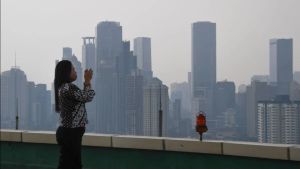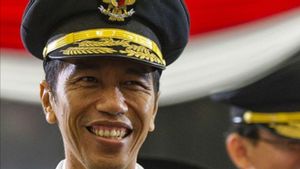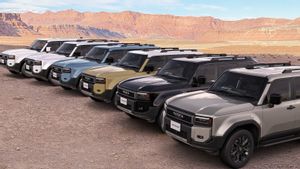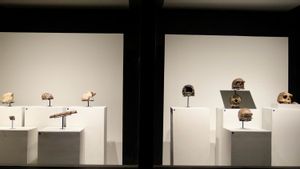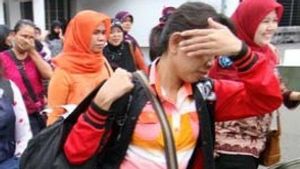JAKARTA - Of the many wars involving the United States (U.S.) on the face of the earth, there is nothing more than the Vietnam war. This war was the U.S. biggest mistake. Look back at important facts of the Vietnam War, including the secret of Dau Tranh's tactics that wiped out the U.S. and their dreams of power.
General Westmoreland called the U.S. defeat an inevitable sin of President Lyndon Johnson. Johnson was called sluggish and half-and-half of the cause drifted in U.S. public opinion that at the time opposed the war.
In addition to Johnson, Westmoreland also alluded to the role of the media to shake up a war agenda that for him was fraught with maneuvers that reversed the facts behind the strengthening of the anti-war narrative in U.S. society.
The Vietnam War did have a tremendous impact on the US. Cited a February 1991 issue of Tempo magazine article titled Vietnam War: Why America, at least 57,939 U.S. citizens were killed and lost in the war.
Those killed are dominated by young people, the next generation is on average 19 years old. Quoted from The Richard Nixon and the Vietnam War: The End of the American Century (2016) by David F. Smith, the failure of the war that wiped out the buds of the nation's generation dragged the U.S. out of their dream of realizing the "American Century" aka the "American Century".

Yes, the U.S. came to Vietnam with great passion for their liberal ethics. Instead of transmitting liberalism and countering totalitarian understanding, the U.S. suffered the opposite fate. Vietnam was then ruled by communist North Vietnam.
George Ball, a senior U.S. State Department figure during Presidents Kennedy and Johnson called the war the worst U.S. mistake in history. A 1980 poll involving U.S. soldiers and Vietnam war survivors focused blame on the country's political leaders.
More than 82 percent of them believe the defeat was because politicians were too slow and flaccid to wage war. Back to Westmoreland. In the record books, Westmoreland--who led troops in Vietnam throughout the period 1965-1968 details the things that led to the U.S. defeat of Vietnam.

First, because politicians -- who often refer specifically to president Johnson-- rejected the suggestion of raids by North Vietnamese troops on shelters in Laos and Cambodia. Westmoreland also argues the U.S. is half-and-half, evidenced by the inadequate equipment of its U.S. ally, South Vietnam.
Two other opinions have been expressed above, regarding the mass media and anti-war public opinion. Not just Johnson. Westmoreland also blamed President Nixon and his national security adviser, Henry Kissinger.
Both are considered blunders for releasing the South Vietnamese regime through the 1973 ceasefire agreement. The agreement, which Westmoreland said made room for North Vietnamese troops to remain in South Vietnamese territory.
"It's a lesson. Don't send young people to the battlefield if their own people don't support it," Westmoreland said.
Unexpected battlefield
The attitude of politicians, however, is far more predictable than the battlefield itself. Brigadier General Robert Montague commented heavily on U.S. mistakes on the ground. Montague, who first visited Vietnam in the early '60s, said the main U.S. mistake was installing conventional units.
The unit was once used and managed to repel Russia in Western Europe, indeed. But Vietnam is different. In terms of terrain, Vietnam is filled with forests and rice fields. In terms of soldiers, Vietkong soldiers, in the guerrilla often make the U.S. fooled because of the appearance is no different from ordinary farmers.
Admiral Thomas H. Moorer added that the war site alone was wrong. It's as simple as that. "We should be fighting in the North, where all the enemy is clear. So there's no concern about shooting civilians. In the South, we have to deal with women who keep grenades behind their backs or baby diapers," he said.

Academic opinion lecturer at the Army War College, Colonel Harry G. Summers said there was a failure of strategy that had a major impact on U.S. operations in Vietnam. Summers, who also entered the war and led the battalion, called the pursuit of Vietkong soldiers one of the most influential.
U.S. troops were lured by Vietnam's strategy of deploying vietkong soldiers deliberately to bolster U.S. forces. In other words, the pursuit left U.S. soldiers with futile fatigue. " (THE) Like a bull playing matador cloth. Not the other way around," Summers said.
Dau Tranh TacticsNorth Vietnam's military commander-in-chief Vo Nguyen acknowledged the U.S. was far superior in terms of troops. But the U.S. failed to understand their own strengths and weaknesses. North Vietnam, almost valid is the winner in terms of strategy in the war that lasted November 1955 until April 30, 1975.
There is one of the best known strategies that North Vietnam has implemented in the war against the US. The strategy is called "Dau Tranh Tactics", which is the use of humans as a tool of war.
"The mystique that surrounds it includes the organization, mobilization, and motivation of people. Violence is also necessary but that's not the goal," Vo Nguyen, quoted by the Daily Beast, was quoted as saying in the November 18, 2017 edition.
Summarized from the BBC, Dau Tranh's tactics involve three specific methods: murder, propaganda, and guerrilla warfare. All three methods are combined with conventional military operations. There is an acronym called PEG (peasants, enemy, guerilla).
"Peasant" means farmer. Vietkong soldiers approached the peasants to support them. The farmers were needed in the operation to meet the food supplies of vietkong soldiers. Not only that, farmers are also used by their houses and villages for protection and hiding places.

The second, "enemy", was Vietkong propaganda to indoctrinate the peasants. They were told that the U.S. and South Vietnam would take their rice fields. Vietkong also instilled the knowledge that the U.S. was an occupier country, like France, but with more money and better weaponry.
The grudge against Vietnamese society during the French occupation in 1887 smoothed out anti-colonial propaganda. In addition, the Vietkong also launched a narrative of attacks on South Vietnamese politicians by referring to them as U.S. puppets. That narrative was welcomed, given south Vietnam's corrupt regime and away from the peasants.
This "enemy" propaganda was very helpful to North Vietnam. And they're great at this. From naming, for example. Vietkong is taken from the acronym "Vietnam Cong-san" meaning communist Vietnam, a term the US uses for the National Liberation Front (NLF) formed with North Vietnamese support.
The third strategy is "guerilla" or guerrilla. In this war the Vietkong only fought on the battlefield that they could win. Vietkong knows very well the strengths and weaknesses of himself.
They were armed only with spears, swords, and explosives taken from U.S. soldiers. The explosives were used to ambush U.S. army patrols. In addition, Vietkong soldiers also made traps of sharp bamboo, mines, grenades, and bullets.
Vietkong also deliberately did not use uniforms in order to blend in with civil society, especially the peasants. In addition to the peasants, vietkong soldiers were also filled with porters and construction workers. Their information agencies are workers at U.S. Army bases and South Vietnam.
As the communist propagandists say: Party-driven mass power proved far more effective than the conventional military power that Uncle Sam's Country army brought.
*Read more information about HISTORY or read other interesting writings from Yudhistira Mahabharata.
Other MEMORY
The English, Chinese, Japanese, Arabic, and French versions are automatically generated by the AI. So there may still be inaccuracies in translating, please always see Indonesian as our main language. (system supported by DigitalSiber.id)
